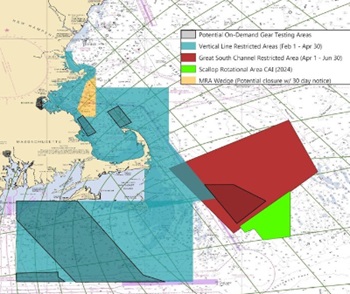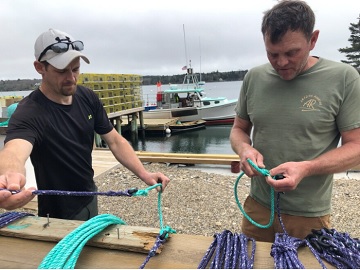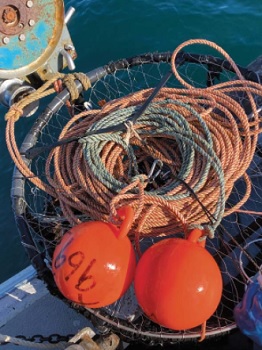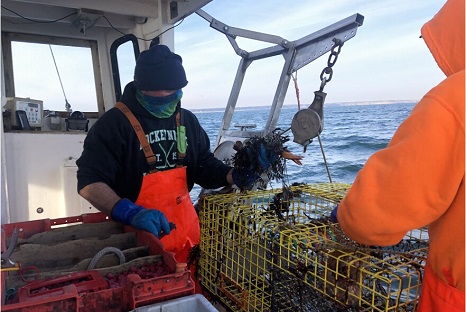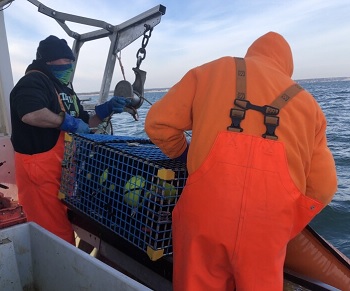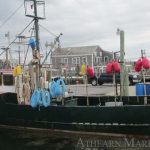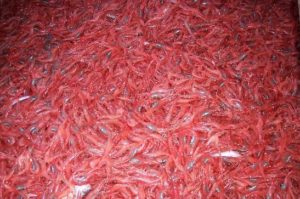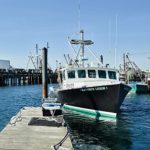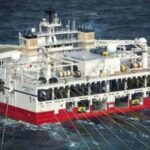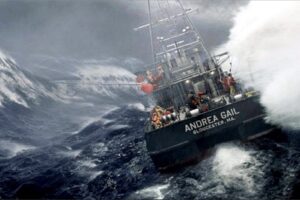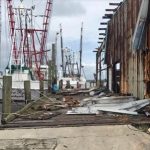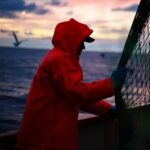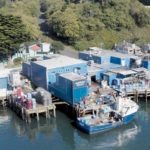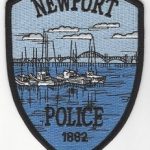Tag Archives: ropeless fishing gear
Here’s how activists use lobstermen as bait to endanger Maine industry, communities
 Far left activists are exploiting the recent death of an endangered whale to imperil the future of Maine’s iconic lobster fishery. These organizations have poor command of the facts and no knowledge of our industry. Their agitating imperils our fishery and the working communities that depend on it. Organizations like the National Resources Defense Council, the Conservation Law Foundation and others are exploiting this event to pressure regulators to impose new rules. These organizations are restless and can claim some success. A self-styled watchdog called Seafood Watch convinced Whole Foods to stop stocking Maine lobster products late in 2022. 3 Videos, more, >>click to read<< By Dustin Delano 16:12
Far left activists are exploiting the recent death of an endangered whale to imperil the future of Maine’s iconic lobster fishery. These organizations have poor command of the facts and no knowledge of our industry. Their agitating imperils our fishery and the working communities that depend on it. Organizations like the National Resources Defense Council, the Conservation Law Foundation and others are exploiting this event to pressure regulators to impose new rules. These organizations are restless and can claim some success. A self-styled watchdog called Seafood Watch convinced Whole Foods to stop stocking Maine lobster products late in 2022. 3 Videos, more, >>click to read<< By Dustin Delano 16:12
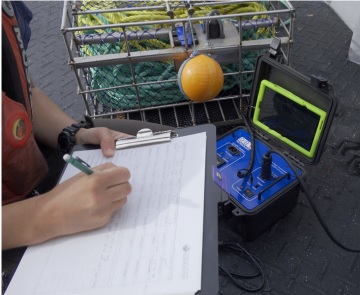
Gear-lending program has harvesters working through closures and trying ropeless fishing gear without commitment
Snow crab fishers in one area of Nova Scotia had a new visitor this season and found themselves closed out of their fishing waters. “We got a 37 percent cut in our quota and [Northern right] whales presented themselves in our zone for the first time ever so [it was] quite stressful,” said Marc Lefort, a snow crab harvester in western Cape Breton Island and a member of Area 19 Snow Crab Fishermen’s Association in Cheticamp, N.S. He’s been fishing for 19 years in the area. “It was a challenging season.” The Northern right whale is critically endangered and conservation efforts have targeted fisheries using fixed gear, or traps connected to buoys by rope. Because whales can be entangled in the fishing gear, fisheries for lobster and snow crab have been forced to think of new measures – and new fishing gear – to protect the marine mammals. >>click to read<< 12:24
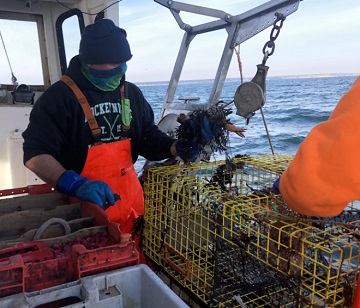
A discussion – Costs of using ropeless fishing gear could sink MA lobster fishery: new report
Experts often say the lobster fishery will have to move to innovative “ropeless” fishing gear to protect North Atlantic right whales from entanglement. There fewer than 340 of the critically endangered whales left. But a new report says Massachusetts lobstermen may be headed for troubled economic waters if they make the switch. But here’s what’s really crazy: the state found that even if lobstermen were just given the on-demand gear for free, using government and nonprofit subsidies, they would still go from making $15 million per year in revenue to just $2 million in revenue per year. And the biggest impacts would be on smaller, more independent operators. I talked to the report author about this, Noah Oppenhiem. He said for lobstermen that only fish only a couple traps per vertical line, they’d go from needing 6 and a half minutes to haul up some lobsters to 11 and a half minutes. >click to read< 11:56
Mass DMF’s On-Demand Fishing Gear Economic Modeling Report Released – >Click to read<
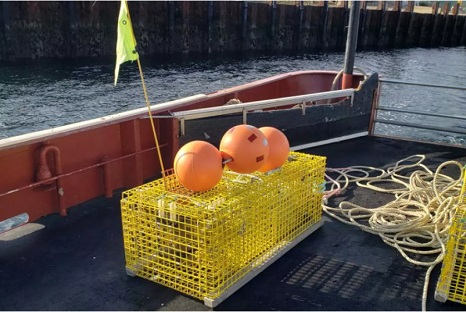
NOAA wants to expand ‘ropeless’ fishing gear pilot to include some Maine lobstermen
Last winter as part of a pilot project, some Massachusetts lobstermen were allowed to fish in areas that are seasonally closed to protect endangered North Atlantic right whales. But they had to use so-called “on-demand” or “ropeless” fishing gear and work with the National Oceanic and Atmospheric Administration to share their feedback. Now NOAA wants to expand the program to include lobster and other fixed-gear fishermen throughout New England. Federal officials have proposed issuing permits to more than 200 people, with priority given to those who fish closed areas during the winter. More than 100 people in Maine fish those closed areas. And fishermen aren’t thrilled with the idea of opening access to only some of them, said Patrice McCarron of the Maine Lobstermen’s Association — unless there’s enough on-demand gear to go around to everyone. >click to read< 10:00
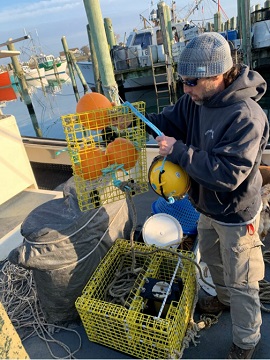
‘Ropeless’ Fishing Gear Aims to Protect Whales, But Adds Complications, Costs
Using federal experimental fishing permits, three Port Judith-based lobstermen are struggling to use the new gear, borrowed from the National Marine Fisheries Service (NMFS), a branch of NOAA Fisheries. On a recent sunny April morning, Richard Lodge and his sea dogs Rudder and Dory were preparing to embark from his dock at Point Judith on his boat Select for a day of lobster fishing using the experimental gear. “Ropeless technology is excessive; I honestly don’t think it is necessary,” Lodge said. “This is a solution to a problem that isn’t there.” He and other Point Judith-based lobstermen said that in decades of time at sea, they don’t know of one instance in which whales were entangled in their lines. >click to read< 09:40
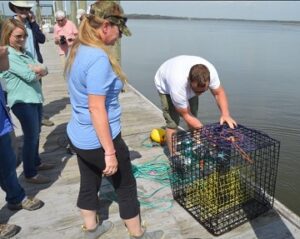
Black Sea Bass fishing return
Locally caught black sea bass may be back on the menu in the Golden Isles from November through April during calving season for North Atlantic right whales. The Georgia Conservancy has spent the past two years in a research project funded by UGA Marine Extension Service and Georgia Sea Grant to study the innovation of on-demand traps in an effort to eliminate the threat of fishing gear entanglement of the whales. Black sea bass fishing off the Georgia coast has been banned during calving season for more than a decade to help protect the whales. >click to read< 15:24

Maine lawmakers call for more hearings on whale rules
Members of Maine’s congressional delegation are asking the federal government to hold more hearings on whale protection rules to gauge the impact on the state’s commercial fishing industry. In a letter to the National Marine Fisheries Service, Sens. Susan Collins, R-Maine and Angus King, I-Maine, said the federal agency’s decision to hold only one public hearing last week on the new regulations “unacceptable” and called for more engagement with the lobster industry. The lawmakers wrote that the 90% risk reduction target fisheries regulators are pursuing over the next two years to protect critically endangered North Atlantic right whales would be a “death knell” for lobstermen. >click to read< 19:06
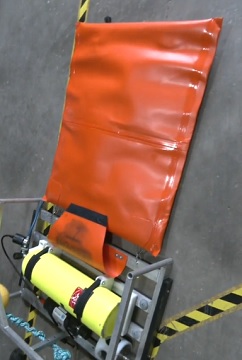
Innovative ropeless fishing gear helps prevent whale entanglements
When fishing zones get closed down due to whale sightings, fish harvesters now have a new place to turn. Can Fish is a program set up by the Canadian Wildlife Federation to allow fishers to test out and use groundbreaking ropeless technology for free. The North Atlantic right whale is one of many marine species being impacted by the changing ocean temperatures in a warming world. The whales have been swimming northward moving from the Bay of Fundy to the Gulf of St. Lawrence,,, The Canadian Wildlife federation is trying to lessen this risk by popularizing the use of ropeless fishing gear through its newly introduced Can Fish program. At a warehouse in Halifax, Nova Scotia, fish harvesters can show up and borrow innovative ropeless fishing gear for free. The catch? These fishers need to provide data collected as they use the innovative technology in order to help build future designs of the equipment. Video, photos, >click to read< 17:30

Massachusetts: New relief fund would buoy lobster industry
A proposed state fund would provide financial relief to commercial lobstermen whose livelihoods are being impacted by state and federal regulations aimed at protecting critically endangered north Atlantic right whales. Tucked into a $52.7 billion state budget awaiting action by Gov. Charlie Baker is a proposal to create a new grant program with $500,000 in initial funding. The plan calls for providing grants of up to $5,000 to licensed lobstermen to help offset the cost of purchasing new gear and equipment needed to comply with the new whale protection rules. The grant money must be distributed in a “geographically equitable manner” under the proposal. Senate minority leader Bruce Tarr, R-Gloucester, who pushed for the funding, said it will help buoy lobstermen who are struggling to afford the expense of upgrading their gear and equipment. >click to read< 17:50

Massachusetts DMF’s Ropeless Fishing Gear Feasibility Report Released
The Massachusetts Division of Marine Fisheries has completed the first phase of a two-year project, funded by the National Fish and Wildlife Foundation in partnership with the National Oceanic and Atmospheric Administration, to comprehensively characterize the issues and challenges associated with the integration of on-demand fishing gear technology into New England lobster fisheries. On-demand fishing gear, also known as ‘ropeless gear,’ is a type of fishing gear used in ‘fixed gear’ fisheries, or fisheries that use equipment that is left, or ‘fixed’, in place over time to capture fish. On-demand fishing gear replaces traditional vertical buoy lines, which can result in entanglements with marine mammals including North Atlantic right whales, with new gear retrieval and marking methods. >click to read, and access the report< Assessing the Feasibility of On-Demand Gear in New England Lobster Fisheries, 16:40

Maine’s politicians seek delay on whale protection rules
In a letter to Commerce Secretary Gina Riamondo, Gov. Mills and other officials urge federal fisheries regulators to extend the May 1 deadline to comply with the new regulations, which are aimed at protecting critically endangered north Atlantic right whales by setting a seasonal closure and requiring modifications to gear. They are requesting a July 1 deadline. The state’s commercial fishing industry is working “in good faith” to comply with the new rules but are facing supply chain issues and other complications with less than six weeks to go until implementation of the new rules. >click to read< 17:40

Rebuttal: Ropeless lobstering is not the answer
I grew up in a lobster fishing family and I think I know a thing or two about how to live, thrive, and survive on the water. So, I was surprised to read a recent column, (“Ropeless Technology Ahead of the Wave,” March 2) authored by a “wild mushroom entrepreneur” who seems to think she actually knows best when it comes to the future of the lobster industry. It is accurate to say the Maine lobster industry faces an uncertain future, but not because of the endangered North Atlantic right whale. The real threat comes from Washington, DC,,, >click to read< By John Leonard 09:51
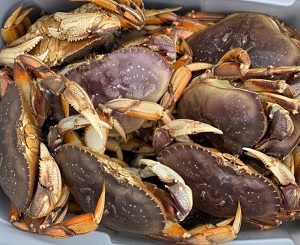
Shortened Dungeness crab season reflects industry uncertainty
Commercial crabbers have made quick work of this year’s Dungeness crab harvest, bringing substantially fewer crustaceans ashore with each lift. The haul has been so meager that even those who ply the waters south of Mendocino County,,, Closures and major catch restrictions in Alaskan crab fisheries, where king and snow crab stocks have plummeted, has heightened demand this winter for the Dungeness crab caught off Central and Northern California. “The thing that’s saving us is the price,” said Dick Ogg, “We’re down to two or three crabs per pot,” said Bodega Bay fisherman Tony Anello, one of many getting ready to pack it in. (Then the conversation of ropeless fishing begins,,,) >Click to read< – Campaigners say ropeless technology could spare whales in the Firth of Forth >click to read< 09:28
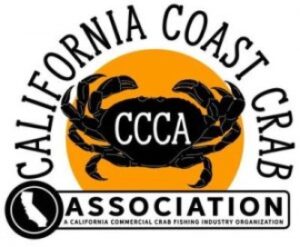
Misguided AB 534 ‘Pop-Up Crab Gear’ Will Hurt Whales, Fishing Families, Coastal Communities
Data Show Whale Populations Soaring, Virtually No Interactions with Crab Gear! Recently, Assembly Member Bonta of the California Legislature introduced a bill, AB 534 that if passed, would require faulty and failure prone ropeless fishing gear, as determined by the California Department of Fish and Wildlife (CDFW), to be used when taking any species of fish for commercial or recreational purposes when using a trap. AB 534 promotes an unproven and unviable fishing method that presents significant operational and safety risks to West Coast fisheries and that will result in more harm to marine life. The bill is an end-run around existing state and federal regulatory >click to read< 13:32
 Bill 534 could eliminate whale entanglements, hurt (destroy) the crab fishery – 03/4/2021, Authored by Rob Bonta-D California, in collaboration with Social Compassion in Legislation and the Center for Biological Diversity, Assembly Bill 534 argues that crabbers use antiquated trapping gear >click to read<
Bill 534 could eliminate whale entanglements, hurt (destroy) the crab fishery – 03/4/2021, Authored by Rob Bonta-D California, in collaboration with Social Compassion in Legislation and the Center for Biological Diversity, Assembly Bill 534 argues that crabbers use antiquated trapping gear >click to read<
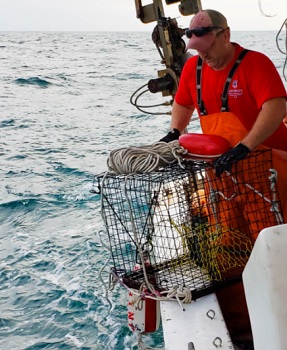
Ropeless fishing gear: Georgia researchers work with commercial fishermen to test equipment
NOAA has identified two areas critical for right whales: off the coast of New England, where the whales forage for food in warmer months; and off the southeast coast from North Carolina to Florida, where the whales reproduce between November and April. Fluech is collaborating with Kim Sawicki, project lead and doctoral student at the University of Massachusetts,, In summer 2020, the research team secured a permit from the National Marine Fisheries Service to test eight different ropeless gear systems with black sea bass pots off the coast of Georgia. It was the first time the ropeless gear had been tested in the South Atlantic. >click to read< 08:37
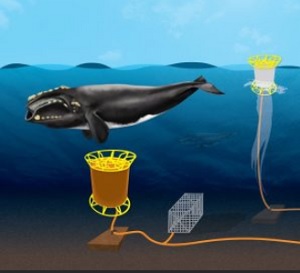
Ropeless Fishing Shows Promise, But There’s a Catch: Financial, Safety, Technology Challenges
On a cold January morning, a lobster trap sitting on a table at a manufacturing facility in Wareham is rhythmically beeping. Two final beeps have a special meaning. “So that’s the release confirmation,” explained Rob Morris, who sells acoustic release systems for the underwater technology company EdgeTech. These “ropeless” systems do away with the high number of vertical lines that run from buoys on the surface down to traps on the ocean floor. Looking at this table, Morris sees the future of the fishery, and many conservationists share that hope. Ropeless fishing eliminates vertical lines in the water column that are blamed for around half of all reported North Atlantic right whale deaths. >click to read< 10:22
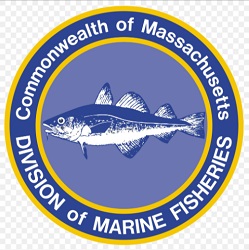
Massachusetts Launches ‘Ropeless’ Fishing Feasibility Study
The Massachusetts Division of Marine Fisheries (DMF) has launched a comprehensive scoping project to assess ‘ropeless’ fishing gear in the New England lobster fishery. A first of its kind on an accelerated timeline, the project will interview dozens of fishermen, technologists, policy experts, and scientists to fully evaluate the challenges and opportunities of the new gear type. The twelve-month project will evaluate fishing, legal, regulatory, technological challenges and opportunities of alternative lobster gear, which could reduce whale entanglements. >click to read< 12:47
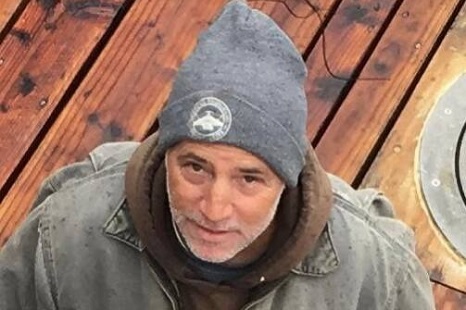
Ben Platt: Whales aren’t at risk from crab fishing along California’s coast
Anyone who lives in or near California’s many historic fishing communities like Morro Bay, Monterey, or Half Moon Bay, has probably heard the term “ropeless” crab fishing gear. That’s the new buzzword for equipment being promoted by environmental groups to solve the perceived problem of whale interactions with fishing gear.,,, Both the East Coast Lobster fishery and the West Coast Dungeness crab fishery, each of which are made up of thousands of independent fishermen, have tested the pop-up “ropeless” gear and found it to be faulty. Meanwhile, strikes by large ships likely cause 50-150 whale deaths a year off the West Coast,,, >click to read< 07:31

More ropeless fishing “experiments” happening on Eastern seaboard as industry leaders meet.
Sean Brillant, who works for the Canadian Wildlife Federation and is chair of the Ropeless Consortium, said they are approaching roughly 1,000 trials across the Eastern Seaboard, the bulk of which has been done in the last 12 months. “Two years ago, we were just getting laughed in our faces at the idea of doing this,” Brillant said. The methods being tested include techniques that allow a line to be stored with a trap at the ocean bottom, and then released to the surface only when a fisherman is ready to haul in their catch. The aim is to cut the risk that whales will be caught in long lengths of rope floating in the water. >click to read< 09:05
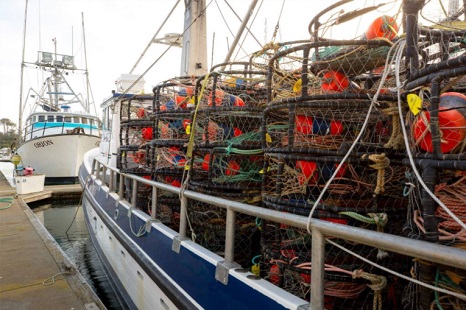
Ropeless fishing gear won’t save whales
If you live in one of California’s historic fishing communities like Bodega Bay, (or Coastal New England) you’ve probably heard the term “ropeless” crab fishing gear. That’s the new buzzword for equipment being promoted by environmental groups to solve the perceived problem of whale interactions with fishing gear. These groups have convinced the California Department of Fish and Wildlife to adopt onerous new regulations that will force crab fishermen to adopt expensive, impractical and unproven fishing gear that will put most of us out of business. The truth, however, is something different. How do we know this? Both the East Coast lobster fishery and the West Coast Dungeness crab fishery, each of which are made up of thousands of independent fishermen, have tested the pop-up ropeless gear and found it to be faulty. >click to read< 09:54

Everything you’ve heard about ‘ropeless’ fishing gear is false.
Is so-called “ropeless” fishing gear the magic bullet for the perceived problem of marine mammal interactions in California’s crab fisheries? (what about the New England lobster fishery?) Several profit-driven environmental groups, including Oceana, would like the public and the California Department of Fish and Wildlife (CDFW) to believe it is.,,, In truth, there have only been four mortalities attributed to CA commercial Dungeness crab gear since 2013, and none during the last two seasons.,,, Maine’s lobster fishery has never had a documented serious injury or mortality for any Right whale, and no entanglement since 2002, which makes this a non-problem. One of the problems with “ropeless” gear is that it’s a misleading term used by the profit-driven environmental groups to make it seem harmless. >click to read< 15:06

Northern Right Whales Are on the Brink, and Trump Could Be Their Last Hope
The task of responding will fall to an unlikely champion, President Trump, whose recent appeals for support from Maine lobstermen could clash with the task of saving the right whale. Peter Corkeron, a senior scientist at the New England Aquarium who spent nearly a decade chronicling the gruesome deaths of right whales as the director of the National Oceanic and Atmospheric Association’s research program for large whales, said he feared the listing would have little impact. “Lobstermen certainly recognize the dire circumstance that the right whale species is in right now,” Patrice McCarron, “We’re in this awkward situation where right whales are not doing great, and it’s certainly not the fault of the commercial fisheries.”PEER also filed a complaint last year with the inspector general of the Commerce Department, which oversees NOAA, arguing that federal officials intent on reopening fishing areas have been ignoring their own scientists on climate change as well as other threats to whales. >click to read< 11:37
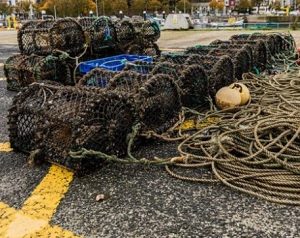
Ropeless Fishing Gear: Scottish tests of ‘whale-friendly’ fishing creels
Fishing gear designed to protect whales from entanglement is being trialled off Scotland’s coast. Whales can become caught in rope that runs between shellfish creels on the seabed to a buoy on the surface. The new “ropeless creels” have this main line in a container along with a buoy and these are lowered to the seabed with the creels. >click to read< 08:10
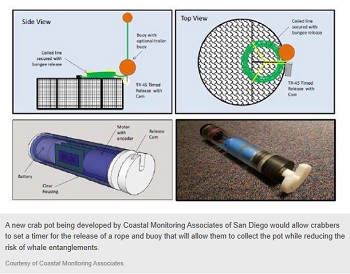
Ropeless Fishing Gear: New Crab Pot Could Help Reduce Whale Entanglements
Last year 46 whale entanglements were reported off the West Coast, and crab gear was responsible for about a third of them. According to Derek Orner, a bycatch reduction program coordinator with the National Marine Fisheries Service, this a growing problem,,, His agency recently announced grants for several ropeless fishing gear projects, including a new kind of crab pot developed by Coastal Monitoring Associates of California. >click to read< 09:43






